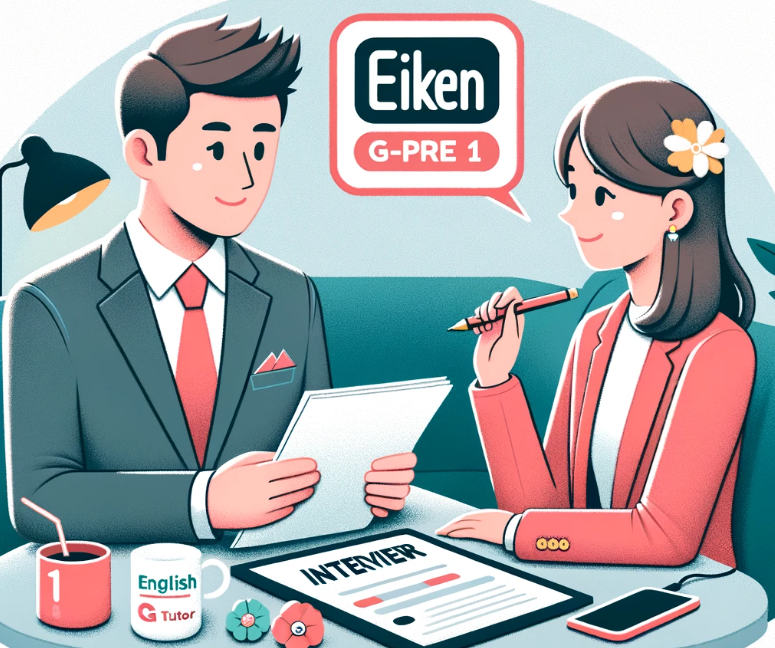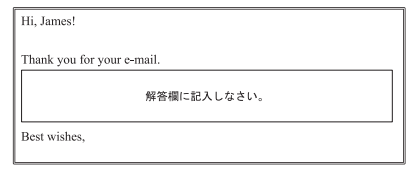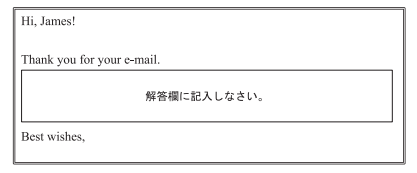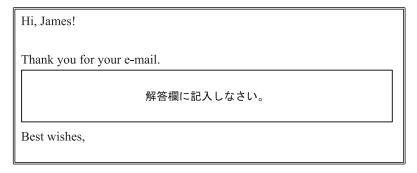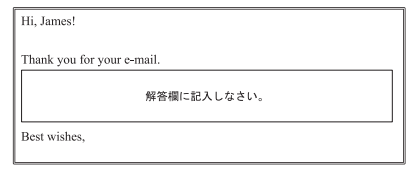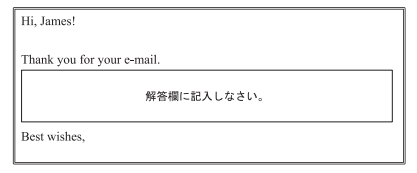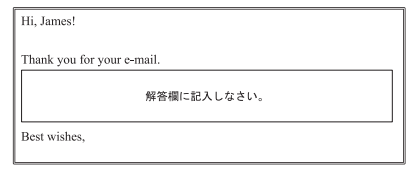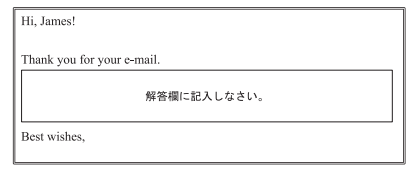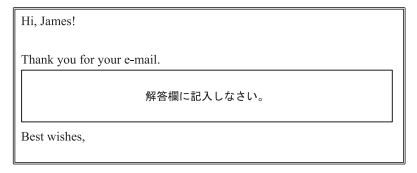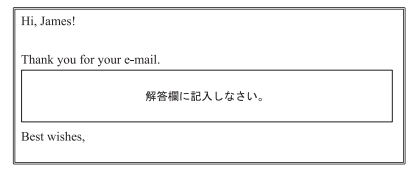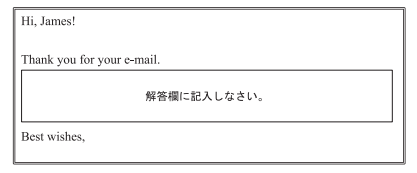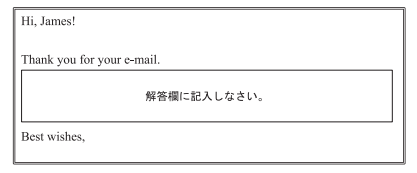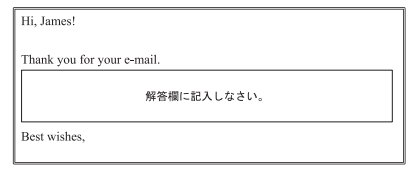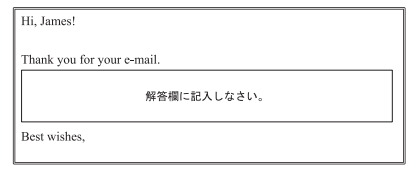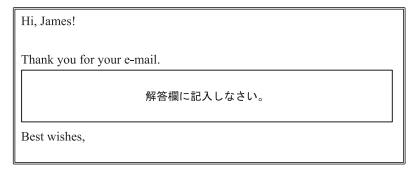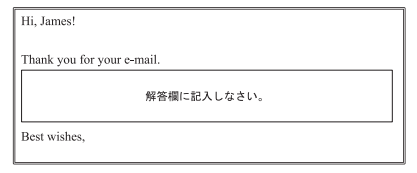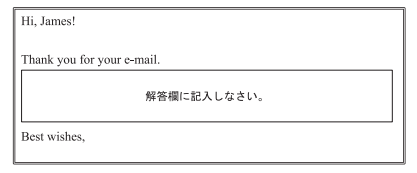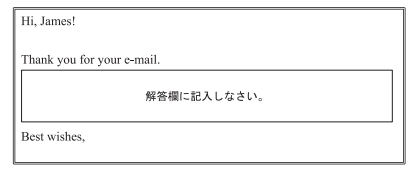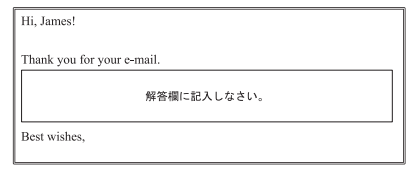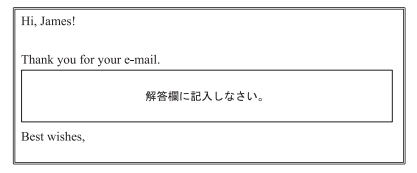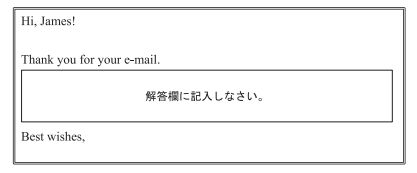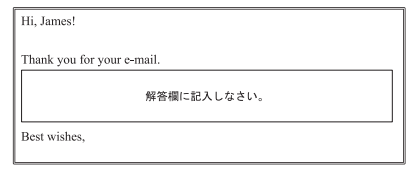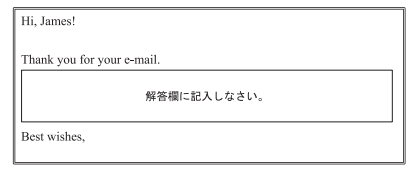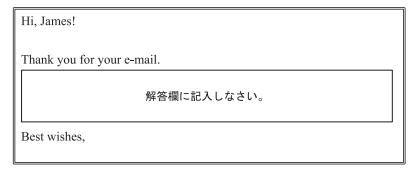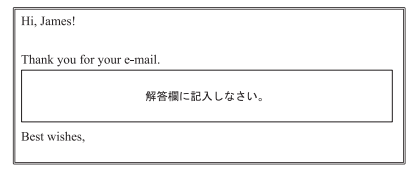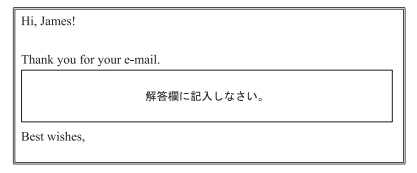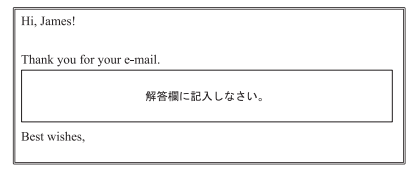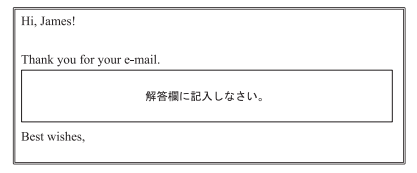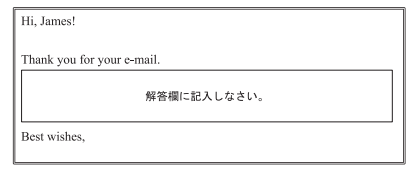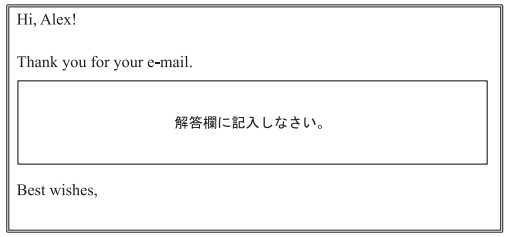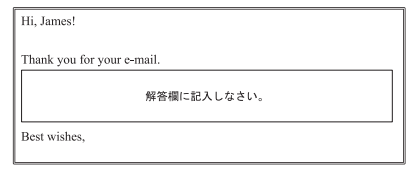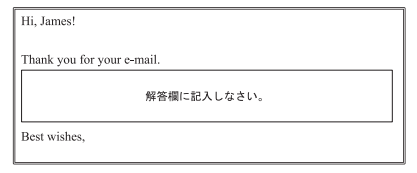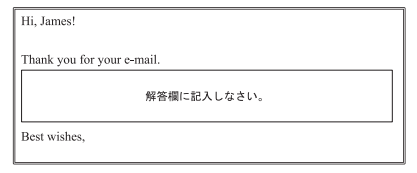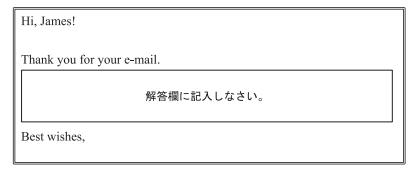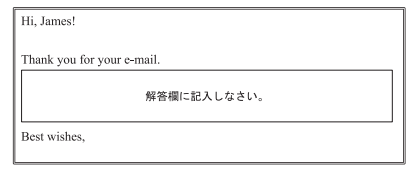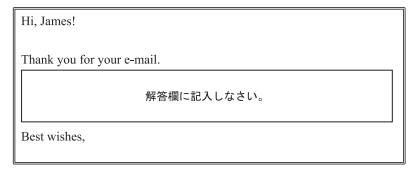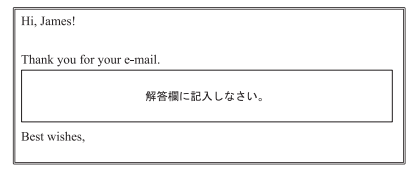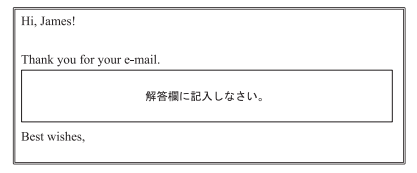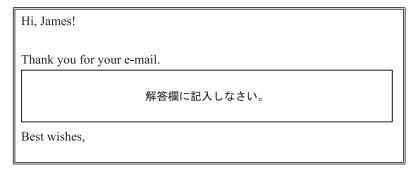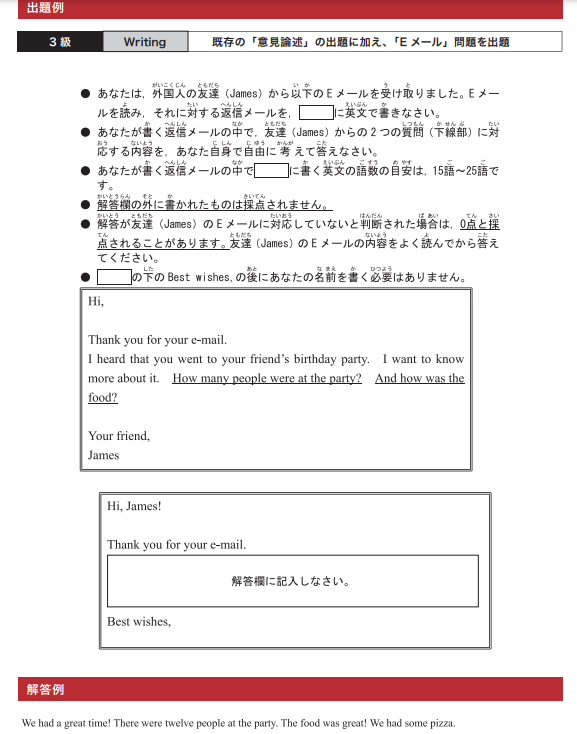レッスン教材 一覧
● Instructions: Read the article below and summarize it in your own words as far as possible in English.
● Suggested length : 90–110 words
● Write your summary in the space provided on your answer sheet. Any writing outside the space will not be graded.
================================================
Lesson 1 (283 words)
The evolution of remote work, a trend accelerated by the COVID-19 pandemic, has brought about substantial changes in the global workforce. This shift from traditional office-centric models to remote or hybrid models of work is not only redefining workplace dynamics but also influencing broader socio-economic aspects.
Initially, remote work was adopted as a necessity to maintain business continuity during lockdowns. However, it quickly demonstrated numerous advantages. For employees, it offered unprecedented flexibility and a better work-life balance, reducing commute times and allowing for a more personalized work environment. Employers benefited from access to a wider talent pool, unconstrained by geographical boundaries, and reported increases in productivity. The adoption of digital tools for communication and collaboration, such as video conferencing and cloud-based platforms, became widespread, enhancing the feasibility of remote work.
Despite these benefits, the transition to remote work presents challenges. The blurring of boundaries between personal and professional life can lead to increased stress and burnout. The lack of physical interaction and casual office conversations can impact team cohesion and company culture. Additionally, not all industries or roles are conducive to remote work, leading to disparities in who can leverage these benefits. There’s also a growing concern about the digital divide, as not everyone has equal access to the technology and infrastructure required for effective remote work. As the world adapts to the new normal, the concept of remote work continues to evolve. It is increasingly being viewed not just as a temporary response to a global crisis but as a permanent feature of the modern work landscape. This shift is likely to have long-term implications on urban planning, real estate, and environmental sustainability, as reduced commuting contributes to lower carbon emissions.
================================================
Lesson 2 (287 words )
The integration of artificial intelligence (AI) in healthcare is a paradigm shift, heralding a new era of medical innovation. AI’s ability to process vast amounts of data rapidly and accurately is transforming disease diagnosis, treatment personalization, and patient care management. This technological advancement is not only enhancing the capabilities of healthcare professionals but also improving patient outcomes.
AI in healthcare takes various forms, from diagnostic algorithms that detect diseases from imaging data to chatbots that provide preliminary health consultations. One of the most significant applications is in the field of oncology, where AI algorithms analyze complex medical imaging to identify cancerous lesions, often with greater accuracy and speed than human radiologists. This early detection is crucial in improving treatment success rates. Additionally, AI is being used to personalize treatment plans based on individual patient data, leading to more effective and tailored therapies. In patient care management, AI systems help monitor patient vitals and predict potential complications, enabling timely interventions.
However, the implementation of AI in healthcare faces challenges. The accuracy of AI systems depends heavily on the quality and quantity of the data they are trained on, raising concerns about biases in AI decision-making. Ethical considerations, such as patient consent and data privacy, are also critical. Furthermore, there’s a need to balance AI integration with the irreplaceable human elements of healthcare, such as empathy and ethical judgment.
As AI continues to evolve, its potential to revolutionize healthcare is undeniable. The ongoing advancements in AI technology promise not only more efficient healthcare systems but also more personalized and effective patient care. The future of healthcare with AI integration looks promising, with the potential to significantly improve both the efficiency of healthcare delivery and the quality of patient outcomes.
======================================================
Lesson 3 (313 words )
Travel and tourism, sectors integral to global cultural exchange and economic development, have undergone significant transformation. This article explores the evolution of these industries through three lenses: the changing nature of travel experiences, the impact of tourism on cultural exchange, and the challenges facing the tourism industry in the modern world.
Travel experiences have evolved dramatically over the years, influenced by technological advancements and shifting traveler preferences. Gone are the days when travel was a luxury afforded by a few; it has now become more accessible and diverse. The advent of affordable air travel, online booking platforms, and virtual reality tours have revolutionized how people plan and experience their journeys. Additionally, there is a growing trend towards experiential travel, where visitors seek authentic, immersive experiences that offer deeper cultural insights rather than just sightseeing. This shift reflects a broader desire for meaningful connections with different cultures and a deeper understanding of the world. The impact of tourism on cultural exchange is profound. It fosters a mutual exchange of ideas, customs, and traditions, enriching both travelers and host communities. Tourism provides opportunities for cultural preservation, as it can generate interest and financial resources for maintaining historical sites, traditional arts, and local practices. However, this exchange is not without its challenges. Issues like cultural commodification and the dilution of traditional practices can arise, necessitating responsible and sustainable tourism practices that respect and honor local cultures.
The tourism industry faces several challenges in today’s global context. The COVID-19 pandemic, in particular, has had a dramatic impact, leading to travel restrictions and a significant decline in tourism revenue. This crisis has highlighted the need for the industry to adapt and innovate, focusing on sustainable and responsible tourism models that can withstand such challenges. Furthermore, the industry must address environmental concerns, ensuring that tourism development does not come at the cost of ecological degradation or cultural integrity.
====================================================
Lesson 4 (230 words )
The intersection of technology and education is an evolving landscape, significantly impacting the methods and accessibility of learning. Educational technology, often referred to as EdTech, encompasses a wide range of tools and platforms, from virtual classrooms to AI-powered personalized learning systems. This evolution is reshaping the traditional classroom setting, offering new opportunities and challenges in the educational sector.
EdTech’s growth is driven by the increasing demand for accessible and flexible learning solutions. Online learning platforms have democratized education, enabling students from remote or underserved areas to access quality resources and instruction. AI and machine learning are tailoring educational content to individual learning styles and needs, making learning more efficient and effective. Additionally, technological advancements in education are preparing students for a digital future, equipping them with necessary 21st-century skills. This integration of technology in education is not just about digital literacy; it’s about fostering critical thinking, creativity, and problem-solving skills in a digital context. However, the rapid adoption of EdTech brings its own set of challenges. The digital divide is a significant concern, as not all students have equal access to the necessary technology and internet connectivity. This inequality can exacerbate existing educational disparities. Moreover, there is a risk of over-reliance on technology, potentially leading to reduced face-to-face interaction and a loss of traditional teaching methods. Balancing technological integration with personal interaction and traditional teaching methods is crucial.
As we move forward, EdTech is likely to become an integral part of educational systems worldwide. Its ability to provide personalized, accessible, and flexible learning experiences is invaluable. However, addressing challenges such as the digital divide and ensuring a balanced approach to technology in education are essential for realizing the full potential of EdTech. This balanced approach will ensure that technology enhances rather than replaces the human elements of education.
=========================================================
Lesson 5 (283 words )
The debate surrounding the safety of genetically modified (GM) foods is a significant issue in both scientific and public forums. Genetically modified organisms (GMOs) have been heralded for their potential to enhance food security, particularly in regions facing agricultural challenges. However, concerns about their impact on human health and the environment persist, making this a polarizing topic.
Proponents of GM foods argue that they can play a crucial role in addressing global food shortages. By modifying crops to be more resistant to pests, diseases, and harsh environmental conditions, GMOs can increase crop yields and reduce the reliance on chemical pesticides. Moreover, GM foods can be engineered to have higher nutritional value, such as rice enriched with Vitamin A, potentially alleviating malnutrition issues. This scientific advancement represents a significant step towards ensuring food security for a growing global population. On the other hand, the critics of GM foods raise concerns about the long-term health impacts and environmental risks. The potential for GM crops to cross-breed with wild plants and the unknown effects of consuming GMOs over extended periods are major points of contention. Additionally, the monopolization of seed production by a few large corporations, which control the GMO market, raises issues regarding farmer independence and biodiversity. These concerns underscore the need for stringent safety assessments and regulations governing the use of GMOs in agriculture.
The ongoing debate over GM foods highlights the complexities involved in balancing scientific advancements with ethical, health, and environmental considerations. As the world grapples with food security challenges, the role of GM foods remains a critical area of research and policy-making. Ensuring their safety and accessibility while addressing public concerns is essential for their potential benefits to be fully realized.
============================================================
Lesson 6 (302 words )
The role of Japan in the global economy is a multifaceted and evolving narrative, marked by its unique blend of traditional values and cutting-edge technology. As the world’s third-largest economy, Japan’s influence extends far beyond its geographical boundaries, impacting various global sectors including technology, finance, and international trade.
Japan’s economy, renowned for its technological innovations and manufacturing prowess, particularly in the automobile and electronics industries, has been a driving force in the global market. These sectors not only exemplify Japan’s commitment to quality and efficiency but also contribute significantly to its GDP. The country’s focus on research and development has led to advancements in various fields, solidifying its status as a leader in technological innovation. However, Japan faces demographic challenges, primarily an aging population and a declining birthrate, which pose significant threats to its workforce and economic growth. The government’s efforts to address these issues through policy reforms and initiatives, including encouraging women’s participation in the workforce and promoting work-life balance, are crucial for sustaining economic vitality.
In the international arena, Japan plays a key role in shaping economic policies and fostering global partnerships. As an active member of international organizations like the G7 and the World Trade Organization, Japan advocates for free trade and multilateral cooperation. Its approach to international relations, balancing its economic interests with diplomatic considerations, is pivotal in maintaining stability in the Asia-Pacific region. Moreover, Japan’s commitment to environmental sustainability and addressing climate change aligns it with global efforts to promote a greener economy.
Japan’s role in the global economy is a testament to its resilience and adaptability. Navigating demographic challenges, fostering technological advancements, and maintaining a strong presence in international affairs are integral to its continued success. As Japan adapts to changing global dynamics, its economic and technological contributions will remain vital to the worldwide community.
=======================================================
Lesson 7 (297 words )
The debate over the compulsory nature of voting in democratic societies is an issue of significant political and social importance. Voting is the cornerstone of democracy, providing citizens with the power to influence government policies and leadership. However, the question of whether voting should be mandatory remains contentious, reflecting differing views on civic responsibility and individual freedom.
Proponents of compulsory voting argue that it is essential for the health of a democracy. Mandatory voting ensures higher voter turnout, which leads to more representative and legitimate election outcomes. It encourages political engagement and awareness among the populace, as citizens are more likely to educate themselves about political issues and candidates if they are required to vote. Furthermore, compulsory voting can reduce the impact of socioeconomic factors on voter turnout, as it obligates all segments of society, regardless of their economic or educational background, to participate in the electoral process. On the other hand, critics of mandatory voting assert that it infringes on individual freedoms. They argue that the right to vote also includes the right not to vote, and forcing citizens to vote against their will is undemocratic. Compulsory voting may lead to uninformed or indifferent voting, as some individuals might cast their votes without proper knowledge or genuine interest in the electoral process. Additionally, enforcing mandatory voting can be logistically challenging and potentially coercive, especially in societies that value individual choice and freedom.
The debate on compulsory voting encapsulates the broader discussion about the responsibilities of citizenship and the nature of democratic participation. While it offers potential benefits in terms of increased voter turnout and political engagement, it also raises concerns about individual rights and the quality of voter participation. Balancing these considerations is key to determining the most effective and democratic approach to voting in society.
========================================================
Lesson 8 (304 words )
The global debate on the pros and cons of increasing financial support for the arts is a reflection of differing perspectives on the value of arts in society. While some advocate for more funding, believing that the arts play a vital role in cultural and social development, others question the practicality and impact of such investments.
Advocates for increased arts funding argue that the arts enrich cultural identity and promote social cohesion. They believe that investing in the arts contributes to a more vibrant and diverse society. Artistic endeavors, ranging from theater to music to visual arts, not only provide aesthetic pleasure but also provoke thought, foster empathy, and encourage critical thinking. Supporters also point out the economic benefits, as the arts sector can generate employment, boost tourism, and spur creative innovation. Additionally, arts education is seen as essential for developing well-rounded individuals, nurturing creativity and problem-solving skills that are valuable in various fields.
On the other hand, critics of increased arts funding argue that government resources are better spent on sectors deemed more essential, like healthcare, education, and infrastructure. They contend that the arts should be self-sustainable and primarily supported by private funding and consumer patronage. Critics also raise concerns about the subjective nature of valuing art and the risk of funding projects that may not resonate with or benefit the wider public. In times of economic hardship, they argue, increasing arts funding can be seen as a luxury rather than a necessity.
The debate over arts funding is fundamentally about the role of arts in society and the allocation of public resources. It raises important questions about cultural priorities and the distribution of government support across various sectors. The challenge lies in balancing the undeniable value of arts in enriching lives and communities with practical considerations of budget constraints and public benefits.
==========================================================
Lesson 9 (290 words )
The ongoing discussion about the necessity of improving public safety in public spaces is a crucial issue in contemporary society. This concern arises from the increasing incidents of violence and crime in urban areas, necessitating a comprehensive approach to enhance safety and security for all citizens. Public safety in public spaces encompasses a wide range of areas including crime prevention, emergency response, and environmental design.
One of the primary strategies for improving public safety is through effective law enforcement and crime prevention measures. Increased police presence in high-risk areas, community policing initiatives, and modern surveillance technologies play significant roles in deterring criminal activities. Furthermore, emergency response systems need to be robust and efficient to deal with incidents swiftly and minimize harm. Another critical aspect of public safety is the design of public spaces. Urban planning and design can contribute significantly to safety by incorporating features such as good lighting, clear sightlines, and open layouts that discourage criminal behavior and enhance the perception of safety. However, enhancing public safety in public spaces also presents challenges. There is a delicate balance between ensuring security and preserving individual freedoms and privacy. Over-surveillance and excessive police presence can lead to concerns about civil liberties and the potential for discrimination. Additionally, there is the challenge of ensuring equitable safety measures across different neighborhoods, avoiding the creation of heavily policed zones while other areas remain neglected.
The importance of public safety in public spaces cannot be overstated, as it directly impacts the quality of life and well-being of the community. Effective strategies require a multifaceted approach that includes law enforcement, community involvement, and thoughtful urban design. The goal is to create environments where all individuals feel safe and secure, contributing to a cohesive and thriving society.
=======================================================
Lesson 10 (324 words )
The increasing debate on the necessity of compulsory voting in democracies highlights critical aspects of civic engagement and democratic responsibility. As democratic institutions around the world strive to increase voter turnout, the idea of mandatory voting has gained traction. This concept raises fundamental questions about the nature of civic duties and the principles of a democratic society.
Advocates of compulsory voting argue that it is a civic duty akin to other responsibilities like paying taxes or jury duty. Mandatory voting is seen as a means to ensure higher voter turnout, leading to more representative government decisions. It also encourages political engagement among the populace, as it compels citizens to educate themselves about the issues and candidates. Some countries that have implemented compulsory voting, like Australia, have witnessed consistent high voter turnout, which is considered a sign of a healthy democracy. Proponents believe that compulsory voting can counteract the influence of money and special interest groups in politics, making the electoral process more equitable. However, critics of compulsory voting contend that it infringes on personal freedom, including the freedom to abstain. They argue that compulsory voting leads to uninformed or disinterested individuals casting ballots, which can dilute the quality of electoral outcomes. The enforcement of such a policy also raises practical issues, including the mechanisms for implementation and the penalties for non-compliance. Critics also point out that increased voter turnout does not necessarily translate to more informed voting or better governance. They advocate for voluntary voting as a more genuine expression of democratic will and argue that efforts should focus on encouraging voluntary participation through education and engagement.
The debate over compulsory voting underscores the balance between individual rights and collective responsibilities in a democracy. It reflects broader discussions about civic engagement, the role of citizens in a democracy, and the effectiveness of electoral processes. Whether making voting compulsory enhances or diminishes democratic values is a question that continues to challenge policymakers and citizens alike.
====================================================
Lesson 11 (288 words )
The debate on the pros and cons of increasing financial support for the arts is a significant issue in cultural policy. Arts funding is often seen as a reflection of a society’s values and priorities. The discussion revolves around the impact of arts on social and economic aspects of society and the role of government in supporting cultural activities.
Supporters of increased funding for the arts argue that the arts play a vital role in society. They enrich cultural life, foster creativity and innovation, and contribute to the emotional and intellectual development of individuals. The arts also have the power to bring communities together, promoting social cohesion and understanding. From an economic perspective, investment in the arts can spur economic growth. The arts sector creates jobs, attracts tourism, and stimulates local economies. Proponents also contend that the arts should not be solely dependent on market forces; they require public support to thrive and remain accessible to all segments of society.
However, critics argue that in times of budget constraints, funding for the arts should not be a priority. They contend that public funds should be allocated to sectors deemed more critical, such as healthcare, education, and infrastructure. Critics also point out that increased government funding can lead to bureaucratic interference in artistic expression and creativity. They advocate for the arts to be market-driven and self-sustaining through ticket sales, private donations, and sponsorships.
The debate over arts funding is a complex one, encompassing economic, social, and political dimensions. It raises important questions about the value society places on cultural activities and the role of the government in fostering a vibrant arts scene. Balancing the benefits of arts funding with fiscal responsibility and market principles remains a challenge for policymakers.
=======================================================
Lesson 12 (315 words )
The ongoing debate regarding Japan’s role in the global economy is multifaceted, reflecting the country’s complex interplay of tradition and modernity. As the world’s third-largest economy, Japan’s economic strategies and policies have far-reaching implications. This role, however, is not without its challenges and opportunities, shaping Japan’s current and future position in the global market. Japan’s economic strength lies in its technological innovation and manufacturing prowess, particularly in the automotive and electronics sectors. These industries have not only bolstered Japan’s economy but have also set global standards for quality and efficiency. The country’s commitment to research and development continually drives advancements in various fields, making significant contributions to global technology. However, Japan faces demographic challenges, including an aging population and a declining birth rate, which pose risks to its labor force and economic sustainability. To address this, Japan is exploring various initiatives, including robotics and AI, to maintain productivity, and is gradually opening its doors to foreign labor to mitigate workforce shortages.
In the realm of international trade and diplomacy, Japan’s approach is characterized by a balance of assertive economic policies and strategic alliances. The country actively engages in global partnerships, trade agreements, and is a proponent of free trade. Japan’s stance on environmental issues, particularly its commitment to reducing carbon emissions and transitioning to renewable energy, also plays a vital role in its international reputation. However, geopolitical challenges in the Asia-Pacific region, including trade tensions and regional security concerns, continue to test Japan’s diplomatic and economic strategies.
Japan’s global economic role is a dynamic narrative of navigating internal challenges and external opportunities. Its ability to adapt to changing global conditions, coupled with a strong foundation in technology and innovation, will be crucial in maintaining its status as a key player in the global economy. Japan’s future in the global market will depend on how it balances these factors, ensuring continued economic growth and global influence.
====================================================
Lesson 13 (303 words )
The ongoing debate about the necessity and implications of making voting compulsory in democratic societies is a crucial aspect of political discourse. This issue touches on fundamental principles of democracy and the nature of civic responsibility. Compulsory voting, implemented in various countries around the world, presents both potential benefits and drawbacks in fostering democratic participation.
Proponents of compulsory voting argue that it is a vital component of civic responsibility, similar to other duties like paying taxes or serving on a jury. By mandating voter participation, compulsory voting ensures higher voter turnout, which is often seen as indicative of a healthy democracy. It can lead to more representative government outcomes and reduce the influence of extreme or unrepresentative groups. Additionally, compulsory voting encourages broader political engagement and awareness among citizens, as they are more likely to inform themselves about the issues and candidates if required to vote. However, critics of mandatory voting contend that it infringes upon individual freedom and the right to choose, including the choice not to participate in the voting process. They argue that compulsory voting can lead to uninformed or disinterested voting, as it may compel individuals to vote without sufficient knowledge or genuine interest in the electoral outcomes. Furthermore, the enforcement of such policies raises practical concerns, including the mechanisms for implementation and the penalties for non-compliance. Critics emphasize that democracy is better served by voluntary participation, where the electorate is motivated by genuine interest and engagement in the political process.
The debate over compulsory voting represents a complex balance between promoting democratic participation and upholding individual freedoms. It highlights the ongoing challenge of ensuring meaningful and informed engagement in the democratic process. Whether or not voting should be made compulsory remains a contentious issue, reflecting broader discussions about the responsibilities of citizenship and the effectiveness of democratic systems.
=====================================================
Lesson 14 (295 words )
The increasing financial support for the arts is a topic of considerable debate, reflecting diverse opinions about the role of arts in society and the allocation of public funds. This debate encompasses the broader discussion of how arts contribute to cultural development, economic growth, and social cohesion.
Proponents of increasing financial support for the arts argue that such investment is crucial for cultural enrichment and societal well-being. The arts play a vital role in fostering creativity, offering diverse perspectives, and enhancing quality of life. They are also seen as essential for the development of critical thinking and empathy, skills that are increasingly important in a globalized world. Furthermore, supporters of arts funding emphasize its economic benefits, including job creation, tourism attraction, and stimulation of related industries. Public funding for the arts is also argued to ensure equitable access, allowing people from all socioeconomic backgrounds to experience and participate in cultural activities. However, opponents of increased arts funding argue that in times of limited resources, priority should be given to sectors considered more essential, such as healthcare, education, and infrastructure. They suggest that the arts should be self-sustaining and primarily supported through private patronage and market demand. Critics also raise concerns about the subjective nature of arts funding, with the potential for government-funded projects to not align with public interests or values. They advocate for a more market-driven approach to the arts, which they believe would lead to greater innovation and efficiency.
The debate on financial support for the arts reflects broader societal values and priorities. It encompasses discussions about cultural importance, economic practicality, and the role of government in supporting cultural endeavors. Balancing these aspects remains a key challenge for policymakers, as they navigate the complexities of cultural funding in a diverse and evolving society.
======================================================
Lesson 15 (291 words )
The question of whether scientific advancements are always beneficial is a topic of significant debate, touching upon various aspects of modern society. While scientific progress has undoubtedly brought remarkable benefits, it also poses certain risks and ethical dilemmas. This debate is central to understanding the impact of science on our lives and the environment.
Scientific advancements in fields like medicine, technology, and environmental science have dramatically improved quality of life. Breakthroughs in medical research have led to the development of life-saving treatments and vaccines, while technological innovations have transformed communication, transportation, and industry, driving global economic growth. Environmental science has provided critical insights into climate change and biodiversity, informing sustainable practices. However, these advancements also come with challenges. In medicine, issues such as antibiotic resistance and the ethical implications of genetic editing are concerns. Technological progress, while connecting the world, has raised issues around privacy, data security, and the impact of artificial intelligence on employment. Environmental advancements often struggle against economic and political interests, hindering effective action against climate change. Furthermore, the distribution of the benefits and risks of scientific advancements is often unequal. While some parts of the world gain immensely from new technologies and medical breakthroughs, others are left behind, exacerbating existing inequalities. Additionally, the pace of scientific progress can outstrip ethical considerations and regulatory frameworks, leading to potential risks that are not fully understood or managed.
The debate over the benefits and drawbacks of scientific advancements underscores the need for a balanced approach that considers ethical, environmental, and social implications. As science continues to advance, it is crucial to ensure that its benefits are distributed equitably and that potential risks are carefully managed. The future of scientific progress depends on our ability to navigate these complex issues responsibly.
Scientific advancements bring considerable benefits in medicine, technology, and environmental science, improving life quality and driving economic growth. However, they also present challenges, including ethical dilemmas in medicine, privacy concerns in technology, and clashes with economic interests in environmental issues. The unequal distribution of these advancements exacerbates global disparities. The debate highlights the importance of a balanced approach, integrating ethical, environmental, and social considerations into scientific progress. Ensuring equitable benefits and managing potential risks are essential for responsible scientific advancement. This ongoing discussion underscores the complexity of harnessing science for global betterment while addressing its inherent challenges and ethical implications.
======================================================
Lesson 16 (303 words )
The ongoing debate about the role of Japan in the global economy encompasses its unique position as a technological innovator and its influence on international trade dynamics. Japan, as the world’s third-largest economy, has been a significant player in shaping global economic trends, yet it faces unique challenges and opportunities in today’s rapidly changing economic landscape.
Japan’s economy is renowned for its strong emphasis on technology and manufacturing, particularly in fields such as automotive and electronics. These sectors have not only driven the country’s economic growth but also set global standards in quality and innovation. Japan’s commitment to research and development continually fuels advancements in these industries, contributing significantly to the global market. However, Japan grapples with internal demographic challenges, including an aging population and a shrinking workforce, which pose significant threats to its future economic sustainability. To address these, the government is focusing on policies that encourage workforce participation among women and the elderly, and is gradually opening up to foreign labor.
In the international arena, Japan’s economic policies are characterized by a balance between national interests and global cooperation. The country is a proponent of free trade, actively participating in international trade agreements and partnerships. Japan’s approach to environmental sustainability, especially in terms of reducing carbon emissions and promoting renewable energy, has also enhanced its global standing. Yet, Japan faces geopolitical challenges in the Asia-Pacific region, including trade tensions and security concerns, which require careful navigation.
Japan’s role in the global economy is a dynamic narrative of managing internal challenges while capitalizing on external opportunities. Its future as a global economic leader will depend on how effectively it can adapt to demographic changes, maintain its technological edge, and navigate international relations. Balancing these factors is crucial for Japan to continue its legacy as a key player in the global economic landscape.
=========================================================
Lesson 17 (316 words )
The role of Japan in the global economy is a topic of considerable discussion, reflecting its complex interplay of traditional values and cutting-edge innovation. As the world’s third-largest economy, Japan’s influence extends across various sectors, impacting global trends in technology, finance, and international trade. This role is characterized by both challenges and opportunities, shaping Japan’s current and future economic standing.
Japan’s economy is distinguished by its significant contributions to technology and manufacturing, especially in the automotive and electronics industries. These sectors have not only driven Japan’s economic growth but have also set global standards in innovation and quality. The country’s commitment to research and development continually fuels advancements in these industries, solidifying its position as a leader in technological innovation. However, Japan faces internal demographic challenges, including an aging population and declining birthrate, which pose risks to its labor force and long-term economic sustainability. To combat these issues, Japan has implemented policies to promote workforce participation among underrepresented groups and has been gradually opening its doors to skilled foreign labor. In the international economic arena, Japan’s role is characterized by a balance between assertive economic policies and strategic diplomatic relationships. The country is a proponent of free trade, actively participating in various international trade agreements and partnerships. Additionally, Japan’s commitment to environmental sustainability, especially its efforts to reduce carbon emissions and transition to renewable energy, contributes to its global standing. However, Japan also faces geopolitical challenges in the Asia-Pacific region, navigating complex trade relations and security concerns.
Japan’s position in the global economy is dynamic, requiring a nuanced understanding of its internal challenges and external opportunities. Its ability to adapt to changing global conditions, coupled with a strong foundation in technology and innovation, will be crucial in maintaining its status as an economic powerhouse. The future of Japan’s economy will depend on how it balances these factors, ensuring continued growth and influence on the world stage.
==========================================================
Lesson 18 (281 words )
The debate on whether scientific advancements are always beneficial encapsulates a significant aspect of modern society’s relationship with technology. This discourse is particularly relevant in areas such as medicine, environmental science, and artificial intelligence, where advancements have far-reaching implications.
In medicine, scientific progress has led to groundbreaking treatments and diagnostics, substantially improving patient outcomes and extending life expectancy. Developments in genetic engineering and biotechnology hold immense potential for curing previously untreatable diseases. However, these advancements also bring ethical dilemmas, such as the implications of gene editing and the allocation of advanced medical treatments, which may not be accessible to all due to cost.
Environmental science has made strides in understanding and combating climate change. Innovations in renewable energy technologies and conservation strategies offer hope for a more sustainable future. Yet, the transition to greener practices faces resistance due to economic and political interests, highlighting a gap between scientific knowledge and policy implementation. The challenge lies in balancing economic growth with environmental sustainability. The rise of artificial intelligence (AI) has transformed industries and daily life, making processes more efficient and data-driven. AI’s applications in areas like autonomous vehicles and personalized services are testaments to its potential. However, concerns about job displacement, privacy issues, and the ethical use of AI are significant. The rapid development of AI demands a thoughtful approach to its integration into society, ensuring it serves the greater good without infringing on individual rights.
Scientific advancements bring both extraordinary benefits and complex challenges. The key lies in navigating these advancements with a consideration for their broader impacts on society and the environment. This balance is crucial for harnessing the full potential of scientific progress in a responsible and equitable manner.
======================================================
Lesson 19 (312 words )
The role of Japan in the global economy is a subject of continuous evolution and significance. As one of the world’s largest economies, Japan’s influence is felt across various sectors, from technology to international trade. This role, however, is balanced with challenges and opportunities unique to the country’s economic and cultural landscape.
Japan’s economic strength lies in its technological prowess and manufacturing excellence, particularly in the automotive and electronics industries. These sectors have been instrumental in driving Japan’s economic growth and setting global standards for innovation and quality. Japan’s dedication to research and development has propelled advancements in these industries, contributing significantly to the global market. However, Japan faces internal challenges, such as an aging population and a declining birth rate, which pose risks to its labor force and long-term economic sustainability. The country’s response to these challenges, including increasing workforce participation among women and seniors and opening up to skilled foreign labor, is pivotal for its future economic stability.
In the realm of international economics, Japan’s approach is characterized by a blend of assertive economic policies and strategic diplomacy. The nation is an active participant in global trade agreements and initiatives, promoting free trade and economic cooperation. Japan’s commitment to environmental sustainability, particularly in reducing carbon emissions and advancing renewable energy, further enhances its international standing. Yet, Japan’s economic strategies are not without challenges. Geopolitical tensions in the Asia-Pacific region and fluctuating global market conditions necessitate careful navigation to maintain economic stability and growth.
Japan’s global economic role is an intricate narrative of managing internal demographic issues and external market dynamics. The country’s ability to adapt to changing global conditions while maintaining its strengths in technology and innovation will be crucial in sustaining its status as a major economic power. The future of Japan’s economy will hinge on balancing these various factors, ensuring continued growth and influence in the global economic arena.
==================================================
Lesson 20 (328 words )
The role of Japan in the global economy is a topic of both interest and complexity, reflecting the nation’s unique blend of traditional values and modern economic prowess. As the third-largest economy in the world, Japan’s economic strategies and policies hold significant implications globally. This role, however, comes with its unique set of challenges and opportunities that shape Japan’s position in the international economic landscape.
Japan’s economic strength is underpinned by its major contributions to technology and manufacturing, particularly in the automotive and consumer electronics sectors. These industries have not only reinforced Japan’s economic growth but have also set global benchmarks for quality and efficiency. The country’s commitment to research and development drives continuous advancements in various fields, solidifying its status as a leader in technological innovation. Despite these strengths, Japan faces demographic challenges, including an aging population and a declining birth rate, posing significant threats to its labor force and economic sustainability. In response, Japan is adopting policies to encourage workforce participation among women and the elderly, and gradually opening up to foreign labor to mitigate workforce shortages.On the international stage, Japan plays a crucial role in shaping economic policies and fostering global partnerships. As an active member of international organizations and trade agreements, Japan advocates for free trade and multilateral cooperation. Its approach to environmental sustainability, particularly its commitment to reducing carbon emissions and promoting renewable energy, also contributes to its international standing. However, Japan faces geopolitical challenges, particularly in the Asia-Pacific region, which require careful navigation to maintain its economic stability and international relationships.
Japan’s role in the global economy is a dynamic interplay of managing internal challenges and leveraging external opportunities. Its ability to adapt to changing global conditions, combined with its strong foundation in technology and innovation, will be key in maintaining its status as a key player in the global economy. Balancing these internal and external factors will be crucial for Japan to continue its legacy as a major economic power.
=========================================================
Lesson 21 (290 words )
The efficacy and necessity of increasing financial support for the arts is a topic of significant debate, reflecting broader societal values and the role of culture in public life. This discussion considers the multifaceted impacts of the arts on society and the economy, weighing the benefits against potential drawbacks.
Proponents of increased arts funding argue that the arts are essential for a well-rounded society. They foster creativity, critical thinking, and emotional expression, contributing to the cultural and intellectual richness of a community. Supporters claim that the arts encourage social cohesion, bringing diverse groups together and promoting understanding and empathy. Economically, the arts sector contributes to job creation, tourism, and local business growth, stimulating economies. Additionally, advocates assert that government support for the arts is vital to ensuring access for all, not just those who can afford it, thereby promoting cultural equity. However, critics of increasing arts funding argue that limited public resources should be prioritized for more critical sectors like healthcare, education, and infrastructure. They contend that the arts should be self-sustaining through private patronage, ticket sales, and donations, rather than relying on government subsidies. This perspective views market forces as a more effective determinant of the value and success of artistic endeavors. Critics also express concern over the potential for political influence in arts funding, which could lead to censorship or the promotion of certain ideologies.
The debate on arts funding encapsulates the challenge of balancing cultural enrichment with practical economic considerations. It raises questions about the role of government in supporting cultural development and the allocation of public resources. This discussion is crucial for shaping policies that recognize the importance of the arts in society while being mindful of budgetary constraints and the need for equitable resource distribution.
=====================================================
Lesson 22 (315 words )
The question of whether scientific advancements are inherently beneficial is a topic of significant debate in contemporary society. While these advancements have revolutionized numerous fields, from medicine to technology, they also bring challenges and ethical considerations that necessitate a balanced perspective.
In medicine, scientific progress has yielded groundbreaking treatments and revolutionary diagnostic tools, significantly improving healthcare and extending life expectancies. Advances in genetics and biotechnology have the potential to cure genetic disorders, yet they raise ethical questions about genetic manipulation. In technology, innovations have transformed communication and industry, driving economic growth. However, these developments have also led to concerns about privacy, data security, and the impact of automation on employment. Furthermore, environmental science has made critical contributions to understanding and addressing climate change, yet the implementation of sustainable practices often faces resistance due to economic and political factors. The role of Japan in the global economy epitomizes the challenges and opportunities faced by major economic powers in a rapidly evolving world. As the third-largest economy globally, Japan’s economic policies, particularly in technology and manufacturing, have a profound impact on global markets. However, Japan confronts demographic challenges, including an aging population and shrinking workforce, which pose significant risks to its economic future. Balancing these internal issues with its strong commitment to innovation and international trade is crucial for Japan’s continued economic success.
The debate over increasing financial support for the arts is another reflection of societal values and priorities. Proponents argue that the arts play a critical role in cultural enrichment and social cohesion, warranting increased public funding. They believe that the arts stimulate economic development and enhance the quality of life. Critics, however, argue that public resources should be allocated to more essential sectors like healthcare and education and that the arts should rely on private funding and market demand. This debate highlights the ongoing struggle to balance cultural development with economic and social needs.
=====================================================
Lesson 23 (346 words )
The dynamic interplay between scientific advancements and their impact on society is a topic of considerable debate. While these developments have undeniably led to significant progress in various fields, they also raise complex ethical and practical concerns that must be carefully navigated.
In the medical realm, scientific breakthroughs have revolutionized healthcare, leading to life-saving treatments and improved quality of life. Developments in genetics and biotechnology hold immense promise for tackling intractable diseases, but they also bring ethical dilemmas such as genetic manipulation and equitable access to advanced treatments. Similarly, in technology, advancements in AI and automation have transformed industries, enhancing efficiency and productivity. However, they also pose challenges like job displacement, privacy issues, and the potential societal impact of AI decision-making. Environmental science has contributed significantly to our understanding of climate change, yet the implementation of sustainable solutions often confronts economic and political hurdles. Japan’s role in the global economy highlights the complexities faced by leading economies in adapting to a rapidly evolving global landscape. As a technological powerhouse, Japan contributes significantly to the global market, particularly in the automotive and electronics sectors. Yet, it grapples with internal challenges such as an aging population and a declining birth rate, which impact its workforce and economic sustainability. Japan’s economic strategies in international trade and environmental sustainability play a pivotal role in its global standing, requiring a delicate balance between domestic needs and international responsibilities.
The debate over increasing financial support for the arts encapsulates a broader discussion about societal values and priorities. Advocates argue that the arts enrich cultural life, stimulate economic growth, and foster social cohesion, meriting increased public funding. However, opponents suggest that limited resources should prioritize more essential sectors like healthcare and education. They advocate for the arts to be market-driven, relying on private funding rather than government subsidies. These discussions reflect the broader challenge of integrating scientific and cultural advancements into society in a way that balances progress with ethical considerations and equitable resource distribution. Navigating these complexities is crucial for ensuring that advancements in various fields contribute positively and sustainably to society.
=================================================
Lesson 24 (296 words )
The intersection of scientific advancements and societal impact is a critical area of discussion, with significant implications across multiple domains. Scientific progress has undeniably brought remarkable benefits, yet it also presents challenges and ethical concerns. In medicine, breakthroughs have led to life-saving treatments and improved healthcare, but they also raise questions about accessibility and the ethical implications of genetic engineering. Technological advancements have revolutionized communication and industry, but they bring issues of data privacy and job displacement. Environmental science offers solutions for climate change, yet economic and political interests often hinder implementation.
Japan’s role in the global economy exemplifies the complexities of balancing traditional strengths with modern challenges. As a leader in technology and manufacturing, particularly in the automotive and electronics industries, Japan drives global innovation. However, it faces demographic hurdles, including an aging population, impacting its workforce and long-term economic sustainability. Japan’s active participation in global trade and commitment to environmental sustainability influence its economic strategies, requiring a nuanced approach to maintain its global economic standing amidst evolving international dynamics.
The debate over increasing financial support for the arts encapsulates a broader conversation about cultural value and resource allocation. Advocates argue that arts funding is crucial for societal enrichment, fostering creativity, and stimulating economic growth. However, critics contend that in times of limited resources, priority should be given to sectors like healthcare and education. They advocate for a market-driven arts sector, fueled by private funding and consumer demand. This debate highlights the ongoing struggle to balance cultural development with economic and social needs in policy-making.
These discussions across scientific, economic, and cultural domains highlight the importance of balancing progress with ethical considerations, equitable access, and practical implications. Navigating these challenges is crucial for ensuring advancements contribute positively to society, fostering sustainable growth and cultural enrichment.
======================================================
Lesson 25 (302 words )
The relationship between scientific advancements and their societal impact is a topic of great complexity and importance. On one hand, scientific progress has led to remarkable achievements in various fields, enhancing quality of life and understanding of the world. However, these advancements also bring with them a host of ethical and practical challenges that must be carefully considered.
In medicine, for example, advancements in technology and research have led to life-saving treatments and a greater understanding of human health. Yet, these developments often come with high costs and ethical dilemmas, such as those surrounding genetic engineering and end-of-life care. Similarly, in the realm of technology, innovations in areas like artificial intelligence and data science have revolutionized industries and daily life. However, they also raise significant concerns about privacy, job displacement, and the potential for misuse of information. Environmental science has made strides in addressing issues like climate change and conservation, but these efforts often face resistance due to economic interests or political agendas. The debate over increasing financial support for the arts is another area where societal values and priorities come into play. Advocates for more arts funding argue that it enriches cultural life, fosters community engagement, and can even have economic benefits. However, opponents often view such funding as a lower priority compared to other areas like education or healthcare, arguing that the arts should be self-sustaining through private funding and patronage.
These issues illustrate the broader challenges faced in integrating scientific and cultural advancements into society. Balancing the benefits of these advancements with their potential downsides, and ensuring they are used in ethical and equitable ways, is key to their positive contribution to society. This requires thoughtful consideration of the implications of scientific and cultural progress, and a commitment to addressing the needs and concerns of all segments of society.
==================================================
Lesson 26 (292 words )
The debate around the pros and cons of increasing financial support for the arts is a multi-dimensional discussion reflecting societal values and priorities. Advocates for greater financial support for the arts argue that such investment is crucial for cultural enrichment and societal well-being. They contend that the arts foster creativity, critical thinking, and emotional expression, contributing to the cultural and intellectual richness of a community. Furthermore, the arts have the power to bring communities together, promoting social cohesion and understanding. Economically, investment in the arts can stimulate local economies, generate employment, and boost tourism. Proponents also argue that government support for the arts ensures equitable access, allowing people from all socioeconomic backgrounds to experience and participate in cultural activities.
Conversely, critics of increased arts funding argue that in times of limited resources, priority should be given to sectors considered more essential, such as healthcare, education, and infrastructure. They contend that the arts should be self-sustaining, supported through private patronage, ticket sales, and donations, rather than relying on government subsidies. Critics also raise concerns about the subjective nature of arts funding and the risk of government-funded projects not aligning with public interests. They advocate for a more market-driven approach to the arts, which they believe would lead to greater innovation and efficiency within the sector.
The debate on arts funding represents a broader challenge of balancing cultural development with economic and social needs. It raises important questions about the role of government in supporting cultural endeavors and the allocation of public resources. Policymakers are tasked with striking a balance between the undeniable value of the arts in society and practical considerations of budget constraints and public benefits. This balance is crucial for shaping a policy that nurtures cultural development while being fiscally responsible.
================================================
Lesson 27 (281 words)
The integration of technology in education has ushered in a new era, redefining traditional pedagogies and reshaping the student experience. This transformative journey is characterized by the amalgamation of digital tools in teaching, the evolution of educational methodologies, and the emerging challenges in the digital learning landscape.
Firstly, the digital tools have revolutionized classroom environments. Interactive whiteboards, educational apps, and virtual laboratories have replaced conventional teaching aids, fostering an interactive and engaging learning atmosphere. These advancements facilitate diverse learning experiences, allowing educators to present complex concepts through multimedia and interactive simulations. The integration of technology in classrooms has not only diversified teaching methods but also enabled personalized learning experiences. Students can now access a wide array of resources online, tailoring their educational journey to their individual needs and pace.
The second paradigm shift is the rise of online education. The proliferation of e-learning platforms and virtual classrooms has made education more accessible and flexible. Institutions worldwide offer a variety of online courses, breaking geographical barriers and enabling lifelong learning opportunities. This model supports not just traditional students but also professionals seeking to upgrade their skills, providing a platform for continuous education. The flexibility of online learning, allowing students to balance education with other life commitments, has been a game changer in making education inclusive and adaptable to the needs of a diverse student body.
However, this rapid integration of technology in education is not without challenges. The digital divide poses a significant barrier, with unequal access to technology and the internet exacerbating educational disparities. Additionally, the reliance on technology in education raises concerns about the development of interpersonal skills and the potential impact on mental health due to increased screen time.
=======================================================
Lesson 28 (310 words)
In the contemporary business landscape, green technologies are playing an increasingly crucial role. This shift is driven by a growing awareness of environmental issues and the need for sustainable practices. The integration of green technologies in business operations is not just an ethical decision but also a strategic one, fostering innovation and long-term profitability.
Firstly, the adoption of renewable energy sources, like solar and wind power, is transforming energy management in businesses. These sustainable energy sources reduce reliance on fossil fuels, decreasing carbon footprints and operational costs. Companies are also investing in energy-efficient technologies, such as LED lighting and smart building systems, to optimize resource usage. This shift towards sustainable energy not only helps businesses in reducing environmental impact but also in achieving economic efficiency through lower utility costs.
Secondly, green technology is revolutionizing waste management and resource utilization in businesses. Innovative recycling technologies and waste-to-energy systems are becoming integral in minimizing waste. Companies are increasingly adopting circular economy models, where products are designed for reuse and recycling, reducing resource depletion and environmental pollution. This approach not only contributes to sustainability but also opens up new business opportunities and markets, driving growth and innovation.
Lastly, the rise of green technology has led to the creation of new industries and job opportunities. The demand for sustainable products and services has spurred growth in sectors like renewable energy, sustainable construction, and eco-friendly product manufacturing. This economic shift is not only beneficial for the environment but also for the job market, creating a range of new career paths and fostering a skilled workforce in green technologies.
However, the transition to green technologies in business is challenged by factors like the initial investment costs and the need for technical expertise. Despite these challenges, the long-term benefits of adopting sustainable practices outweigh the short-term hurdles, positioning businesses for future success in an increasingly environmentally-conscious market.
======================================================
Lesson 29 (309 words)
The advent of the digital age has revolutionized entrepreneurship and business management, ushering in a new era of innovation, competition, and strategic planning. This transformation is characterized by three key developments: the rise of digital marketing, the shift towards remote work and digital management, and the challenges and opportunities presented by e-commerce.
Firstly, digital marketing has become a cornerstone of modern business strategy. The proliferation of social media platforms and the increasing reliance on online advertising have shifted the focus from traditional marketing methods to digital campaigns. Businesses are now leveraging data analytics and AI to understand consumer behavior, tailor marketing strategies, and target potential customers more effectively. Digital marketing is not just about reaching a wider audience; it’s about engaging with consumers in a more personalized and interactive manner, enhancing brand loyalty and driving sales.
Secondly, the digital age has transformed the nature of work and management. Remote work has become increasingly common, facilitated by advancements in communication technologies like video conferencing and collaborative online tools. This shift has required businesses to adapt their management strategies, focusing on digital teamwork and project management. Remote work offers flexibility and access to a global talent pool, but it also presents challenges in maintaining team cohesion and productivity.
Finally, e-commerce has redefined the retail landscape. The ease of setting up online stores and the growing consumer preference for online shopping have made e-commerce a crucial component of business operations. While e-commerce offers opportunities for growth and expansion, it also brings intense competition and the need for constant innovation. Businesses must navigate the complexities of logistics, customer service, and digital security to succeed in the e-commerce domain.
In conclusion, the digital age has transformed the way businesses are launched, managed, and grown. While it offers numerous opportunities for innovation and expansion, it also poses challenges that require strategic adaptation and constant learning.
===========================================================
Lesson 30 (300 words)
The global business landscape is undergoing a significant transformation, with sustainability emerging as a key driver of change. This shift is evident in the adoption of eco-friendly practices, the reimagining of supply chains, and the growing emphasis on corporate social responsibility.
Firstly, the adoption of environmentally friendly practices has become a priority for many businesses. This includes investing in renewable energy sources, implementing energy-efficient operations, and reducing carbon footprints. Companies are increasingly recognizing that sustainable practices are not only beneficial for the environment but also lead to cost savings and improved brand reputation. Green initiatives such as reducing waste, recycling materials, and conserving water are being integrated into daily business operations.
Secondly, the transformation of supply chains plays a crucial role in the pursuit of sustainability. Businesses are scrutinizing their supply chains, ensuring that materials are sourced responsibly and manufacturing processes are environmentally friendly. This often involves a shift towards local sourcing to reduce transportation emissions and support local economies. Additionally, there is a growing trend towards circular supply chains, where products are designed to be reused or recycled, minimizing waste and resource depletion.
Finally, corporate social responsibility (CSR) has become integral to business strategy. Companies are not only expected to be economically successful but also to contribute positively to society and the environment. This involves engaging in ethical business practices, supporting community projects, and ensuring fair labor conditions. CSR initiatives have become a key factor in consumer decision-making, influencing brand loyalty and purchase behaviors.
In summary, the global business world is increasingly focused on sustainability. This involves adopting eco-friendly practices, transforming supply chains for responsible sourcing and minimal environmental impact, and embedding CSR into corporate strategy. These changes are not just ethically driven but are also proving to be economically beneficial, indicating a new direction for business practices worldwide.
===========================================================
Lesson 31 (280 words)
The world of education is experiencing a seismic shift due to the integration of digital technology, reshaping teaching methods, learning experiences, and the overall structure of education systems. This revolution encompasses the digitization of educational materials, the emergence of online learning, and the challenges and opportunities of digital equity.
Firstly, the digitization of educational content has transformed traditional teaching resources. Textbooks and static learning materials are being replaced by interactive digital content, including educational apps, videos, and online modules. These resources offer a more engaging and dynamic learning experience, catering to various learning styles. Teachers now employ a range of digital tools to enhance lesson delivery, making education more adaptive and interactive. This shift not only improves student engagement but also allows for the incorporation of real-time feedback and assessments, further tailoring the educational experience to individual needs.
Secondly, the rise of online learning platforms has revolutionized access to education. Distance learning and online courses have removed geographical barriers, enabling students from remote areas or with varying schedules to access quality education. The convenience and flexibility of online learning have also facilitated lifelong learning, allowing individuals to upskill or reskill at their own pace. Additionally, higher education institutions are increasingly offering online degrees, making tertiary education more accessible and inclusive.
However, the digital transformation of education is not without its challenges. Digital equity remains a significant concern, with disparities in access to technology and the internet creating gaps in educational opportunities. The lack of digital resources in underserved communities hinders the effectiveness of digital learning. Moreover, the reliance on technology raises questions about the development of social skills and the impact of screen time on students’ physical and mental health.
=================================================
Lesson 32 (279 words)
The digital age has revolutionized the field of history, transforming how historical research is conducted and how historical knowledge is preserved and disseminated. This transformation is evident in three key aspects: the digitization of historical records, the use of digital tools in historical research, and the challenges and opportunities of digital preservation.
Firstly, the digitization of historical records has vastly expanded access to historical documents and artifacts. Archives, libraries, and museums around the world are digitizing their collections, making them accessible to a global audience. This process not only preserves fragile documents but also allows researchers and the public to access historical resources from anywhere in the world. Digitization has democratized historical research, breaking down the barriers of geography and allowing for a more inclusive understanding of history. Secondly, digital tools are reshaping how historians conduct research. Advanced software for data analysis, digital mapping, and 3D modeling are enabling historians to analyze and visualize historical data in new ways. These tools allow for the exploration of complex historical events and trends, providing insights that were previously difficult to discern. Digital humanities, an emerging field, combines traditional historical methods with digital technology, offering innovative approaches to understanding the past.
However, the digital transformation of history is not without challenges. Digital preservation poses significant technical and ethical questions. As historical records are increasingly stored in digital formats, there is a risk of data loss due to technological obsolescence or cyber threats. Additionally, the digitization process itself raises questions about the selection of materials for digitization and the potential bias this may introduce. Ensuring the long-term preservation and accessibility of digital historical records is a critical concern for historians and archivists.
===================================================
Lesson 33 (313 words)
The digital revolution has profoundly impacted the field of education, fundamentally altering teaching methods, learning experiences, and the structure of educational systems. This transformation is characterized by three key developments: the integration of digital tools into learning environments, the evolution of online education, and the challenges posed by this new digital landscape.
The integration of digital tools into educational settings has transformed traditional classrooms. Interactive whiteboards, educational software, and digital resources have replaced conventional teaching materials, offering more dynamic and engaging learning experiences. These tools cater to a range of learning styles, enabling teachers to present complex concepts through multimedia and interactive content. Furthermore, the use of digital platforms for homework and assessments has facilitated a more flexible and personalized approach to learning. This digital integration enhances student engagement and participation, making education more adaptable and inclusive. The second major shift is the evolution of online education. The rise of e-learning platforms and virtual classrooms has democratized access to education, allowing students from various backgrounds to pursue learning opportunities regardless of their geographical location. Online education offers flexibility, enabling learners to balance their studies with other commitments. Moreover, the proliferation of massive open online courses (MOOCs) and digital degrees has expanded the reach of higher education, breaking down traditional barriers and fostering lifelong learning. This shift is particularly significant in the context of the global pandemic, which accelerated the adoption of online learning as a viable and necessary alternative to in-person education.
However, the digital revolution in education also presents significant challenges. The digital divide is a major concern, with disparities in access to technology affecting educational equity. Additionally, the increased reliance on technology raises questions about the impact on students’ social skills and mental health due to reduced face-to-face interactions. These challenges highlight the need for a balanced approach to digital education, ensuring that technology enhances rather than hinders the learning experience.
========================================================
Lesson 34 (293 words)
The escalating challenges of climate change have catalyzed a unique fusion of environmental studies and technological innovation, forging a path towards sustainability and ecosystem conservation. This synergy is essential in addressing global warming and its impacts, and it manifests in three significant ways: the advancement of renewable energy technologies, the role of big data and AI in environmental monitoring, and the ethical considerations of technological solutions to climate issues.
Renewable energy technologies are at the forefront of this battle against climate change. Solar and wind power, along with emerging technologies like tidal and geothermal energy, are replacing traditional fossil fuels. These technologies not only mitigate greenhouse gas emissions but also offer sustainable, long-term energy solutions. Innovations in energy storage, such as advanced battery systems, are solving intermittency issues associated with renewable sources, thereby enhancing their reliability and efficiency. The rapid growth of renewable energy technologies reflects a crucial shift in energy production paradigms, moving away from environmentally harmful practices towards more sustainable ones. Additionally, the utilization of big data and AI in environmental monitoring is revolutionizing our understanding and response to climate change. Sophisticated algorithms analyze vast amounts of environmental data, from temperature patterns to pollution levels, providing precise and comprehensive insights into climatic changes. This information is vital for predicting future climate scenarios and formulating effective strategies for mitigation and adaptation. AI-driven technologies are also being employed in climate modeling and disaster response, offering innovative solutions to complex environmental challenges.
However, the application of technology in addressing climate issues raises important ethical questions. Geoengineering, for example, involves large-scale interventions in the Earth’s climate system and could have unforeseen consequences. These approaches require careful consideration of their potential ecological impacts, ensuring that technological solutions do not exacerbate environmental problems or create new ones.
===============================================
Lesson 35 (320 words)
In the intersection of technology and environmental studies, one of the most promising developments is the use of emerging technologies in wildlife conservation. This novel approach is reshaping the ways we protect and manage ecosystems, focusing on three key areas: the deployment of advanced tracking systems, the application of artificial intelligence in habitat analysis, and the ethical implications of technological interventions in natural settings.
Advanced tracking systems, utilizing technologies like GPS and satellite imaging, have revolutionized wildlife monitoring and conservation efforts. These systems allow for real-time tracking of animal movements, providing invaluable data on migration patterns, habitat use, and population dynamics. This information is crucial for understanding the needs of different species and for implementing effective conservation strategies. For instance, tracking the migration routes of endangered birds or the territorial ranges of large mammals helps in creating protected areas and corridors that are essential for their survival. These technologies also aid in combating poaching and illegal wildlife trade by enabling more efficient surveillance of protected areas. Artificial intelligence (AI) is another technological frontier in wildlife conservation. AI algorithms can analyze vast amounts of data from various sources, including satellite images, camera traps, and environmental sensors, to identify trends and anomalies in ecosystems. This capability is vital in assessing the health of habitats, detecting early signs of environmental degradation, and predicting potential threats to wildlife. AI-driven models can also simulate different conservation scenarios, aiding in decision-making and policy formulation. The predictive power of AI opens new possibilities for proactive conservation measures.
However, the use of technology in wildlife conservation raises ethical questions. Interventions in natural ecosystems, even when well-intentioned, can have unintended consequences. It is imperative to balance the benefits of technology with respect for the integrity of natural habitats and the well-being of wildlife. Responsible use of technology, with an emphasis on minimal intervention and thorough impact assessments, is essential to ensure that conservation efforts are both effective and ethical.
=======================================================
Lesson 36 (307 words)
The Renaissance, a period spanning from the 14th to the 17th century, marks a profound transformation in European history, characterized by a rebirth in art, culture, and intellectual thought. This era, originating in Italy and gradually spreading across Europe, is distinguished by three significant developments: the revival of classical learning, the flourishing of artistic expression, and the impact of these changes on society and future generations.
The revival of classical learning, known as humanism, is the cornerstone of the Renaissance. Scholars and thinkers turned back to the ancient texts of Greece and Rome, seeking knowledge and inspiration from the works of Plato, Aristotle, and other classical philosophers. This renewed interest in classical culture led to a shift in education, emphasizing the study of humanities – literature, history, philosophy, and languages. The humanistic approach championed the potential of the individual, fostering an environment where intellectual inquiry and rational thought were highly valued. This shift laid the groundwork for modern Western thought and education. Artistically, the Renaissance is heralded as an age of unparalleled creative achievement. Artists like Leonardo da Vinci, Michelangelo, and Raphael pushed the boundaries of artistic expression, blending classical techniques with innovative styles. Their works, characterized by realism, attention to human anatomy, and use of perspective, marked a departure from the rigid and symbolic style of medieval art. The artistic achievements of the Renaissance did not merely reflect aesthetic advancements but also symbolized the era’s deeper exploration of human experience and the natural world.
The influence of the Renaissance extended beyond its time, shaping the course of European history and culture. Its emphasis on individualism and human potential laid the foundation for the Enlightenment and the modern world. The cultural and intellectual legacies of the Renaissance continue to resonate, evident in our appreciation for art, our approach to learning, and our understanding of human potential.
======================================================
Lesson 37 (311 words)
Throughout history, political systems have profoundly influenced human societies, shaping the way people live, govern, and interact with each other. This evolution of political systems is marked by three significant phases: the development of ancient political structures, the transformation during the Enlightenment, and the contemporary era of global politics.
Ancient political structures laid the foundation for modern governance. Early forms of government, such as the city-states of ancient Greece and the Roman Republic, introduced concepts like democracy and republicanism. In Athens, for example, democracy allowed citizens to participate directly in political decision-making, a revolutionary idea at the time. These ancient systems, though limited in scope and inclusivity, set the stage for later political thought and development. They introduced the notion of governance by the people and for the people, influencing future political ideologies and systems.
The Enlightenment period, spanning the 17th and 18th centuries, marked a significant transformation in political thought. Philosophers like John Locke, Voltaire, and Jean-Jacques Rousseau challenged the traditional notions of governance, advocating for individual rights, liberty, and the separation of powers. This era saw the emergence of social contract theory, suggesting that governments derive their authority from the consent of the governed. The political ideas of the Enlightenment played a pivotal role in shaping modern democracies and inspired revolutionary movements, including the American and French Revolutions.
In the contemporary era, global politics are characterized by a complex interplay of democracy, authoritarianism, and emerging challenges like globalization and digital governance. The rise of international organizations and transnational issues, such as climate change and human rights, has expanded the scope of political science. Today’s political landscape is also influenced by technology and social media, which have transformed political communication and public engagement. These developments present new challenges and opportunities for governance, requiring adaptive and inclusive political systems that can address the dynamic needs of a globalized world.
=====================================================
Lesson 38 (329 words)
Art, in its myriad forms, has long been a mirror reflecting societal changes and cultural evolution. This intricate relationship between art and society is evident in three significant aspects: the portrayal of historical and cultural contexts, the influence of art on social change, and the evolving nature of artistic expression in the digital age.
Historically, art has served as a chronicle of its time, offering insights into the cultural and societal norms of different eras. From the allegorical paintings of the Renaissance that reflected the humanist ideals of the period to the provocative works of modern art challenging societal conventions, each artistic movement has been deeply intertwined with the cultural and political milieu of its time. For instance, the romanticism movement in the 18th and 19th centuries was not only an artistic endeavor but also a societal response to the Industrial Revolution and the Enlightenment, emphasizing emotion and individualism. The second aspect is the profound influence of art in driving social change. Artistic works have often been catalysts for social and political movements, challenging established norms and advocating for reform. The role of art in the civil rights movement, feminist movements, and environmental activism highlights its power to inspire and mobilize public sentiment. Art transcends language and cultural barriers, making it a potent tool for raising awareness and effecting change on a global scale.
In the digital age, the nature of artistic expression and its interaction with society has evolved dramatically. The advent of digital technology has democratized art creation and dissemination, enabling artists to reach wider audiences and engage in more direct dialogues with the public. Social media platforms and digital galleries have transformed the way art is consumed and perceived, breaking down traditional barriers and fostering a more inclusive and diverse artistic community. This digital transformation has given rise to new forms of art that reflect contemporary issues and resonate with a broader demographic, further solidifying the role of art as a reflection of society.
====================================================
Lesson 39 (287 words)
The field of psychology, with its diverse theories and insights, has significantly enhanced our understanding of human behavior and its impact on society. This intricate relationship is evident in three primary aspects: the exploration of cognitive and emotional processes, the influence of psychological theories on societal norms, and the integration of psychology in addressing social issues.
The first aspect revolves around the exploration of cognitive and emotional processes in individuals. Psychological theories such as behaviorism, cognitive psychology, and psychoanalysis have provided frameworks for understanding how people think, feel, and behave. Behaviorism, for instance, explores the impact of external stimuli on behavior, while cognitive psychology delves into internal mental processes. Psychoanalysis, initiated by Sigmund Freud, examines the influence of unconscious motives and childhood experiences. These diverse perspectives offer a comprehensive view of human behavior, contributing to a deeper understanding of individuals’ actions and interactions in various social contexts. Secondly, psychology has profoundly influenced societal norms and practices. Theories of social psychology, such as conformity, group dynamics, and social influence, shed light on how individuals’ behaviors are shaped by societal expectations and peer pressure. These insights have implications for areas ranging from education and workplace environments to marketing and media. Understanding the psychological underpinnings of social interactions helps in creating more cohesive and empathetic communities, fostering positive relationships, and mitigating conflicts.
Lastly, the integration of psychological principles in addressing social issues is increasingly evident. Psychology provides valuable tools for tackling challenges such as mental health, discrimination, and social inequality. Therapeutic approaches, including cognitive-behavioral therapy and mindfulness, are employed to address mental health concerns, promoting well-being and resilience. Additionally, psychological research in areas like prejudice and intergroup relations informs policies and interventions aimed at reducing discrimination and promoting social justice.
================================================
Lesson 40 (313 words)
The rapid advancement of technology has significantly influenced the field of sociology, leading to a deeper understanding of social structures, cultural diversity, and contemporary social issues. This relationship between sociology and technology is manifested in three critical areas: the impact of social media on human interactions, the role of technology in shaping cultural identity, and the implications of technological advancements on societal norms and ethics.
Firstly, social media platforms have transformed the way people communicate and interact, introducing new dynamics into the fabric of social relationships. These platforms are not just tools for staying connected; they have become integral to how individuals present themselves, form communities, and engage with society at large. Sociologists study these phenomena to understand the implications of virtual communities on real-life social interactions, examining issues like social isolation, online identity construction, and the spread of information and misinformation. The insights gained from these studies help in understanding the evolving nature of human relationships in the digital age. Secondly, technology plays a pivotal role in shaping cultural identity in the modern world. The ease of access to information and the global reach of the internet have led to a blending of cultural practices and norms. People are now more exposed to diverse cultures and viewpoints than ever before, leading to a more interconnected and multicultural society. However, this also raises questions about cultural homogenization and the preservation of traditional values and practices. Sociologists examine these trends to understand how technology impacts cultural identity formation and the maintenance of cultural heritage.
Lastly, technological advancements bring about significant ethical and societal challenges. Issues such as privacy concerns, digital divide, and the impact of automation on employment are at the forefront of sociological research. Understanding the implications of these challenges is crucial for developing policies and strategies that ensure equitable access to technology and its benefits while safeguarding individual rights and societal values.
===================================================
Lesson 41 (320 words)
Literature, across ages, has been a profound medium for reflecting and influencing sociopolitical landscapes. This intricate relationship between literary works, political ideologies, and social structures can be observed through three significant lenses: the portrayal of societal changes in literature, the influence of literary works on political thought, and the role of literature in shaping and challenging social norms.
Literary works have historically served as mirrors to the societal changes of their times. Authors like Charles Dickens and Victor Hugo used their novels to portray the social realities and injustices of the 19th century, bringing attention to the plights of the poor and the working class. Similarly, George Orwell’s “1984” and Aldous Huxley’s “Brave New World” reflect the anxieties of their respective eras about totalitarian regimes and loss of individual freedoms. These literary works not only depict the societal and political conditions of their times but also provoke thought and discussion about broader social issues. Moreover, literature has often influenced political thought and public policy. Harriet Beecher Stowe’s “Uncle Tom’s Cabin” is credited with galvanizing anti-slavery sentiments in the United States, influencing public opinion and political discourse. In more recent times, dystopian novels like Margaret Atwood’s “The Handmaid’s Tale” have sparked conversations about women’s rights and reproductive freedoms, reflecting and influencing the political climate. The power of literature to shape political ideologies and inspire social movements is undeniable.
Literature also plays a crucial role in shaping and challenging social norms. Through their works, authors question prevailing societal values and norms, often advocating for change. Jane Austen’s novels, while seemingly focused on romantic relationships, subtly critique the gender norms and class structures of her time. In contemporary literature, diverse voices are increasingly being heard, challenging traditional narratives and bringing to light issues of race, gender, and cultural identity. This evolution in literature not only reflects the changing social landscape but also contributes to the ongoing discourse on social justice and equality.
=================================================
Lesson 42 (316 words)
In the realm of political science and sociology, globalization has emerged as a pivotal force, reshaping political systems, international relations, and social structures worldwide. This phenomenon, driven by the rapid flow of information, goods, and people across borders, is characterized by three major aspects: the transformation of political systems, the interplay of international relations, and the impact on societal dynamics and cultural diversity.
The transformation of political systems in the age of globalization is evident. Traditional nation-state models are being challenged by supranational entities and global governance structures, such as the United Nations and the European Union. These organizations play a crucial role in addressing transnational issues like climate change, human rights, and international trade, transcending individual national policies. This shift signifies a move towards a more interconnected and cooperative global political landscape, but it also raises questions about national sovereignty and the efficacy of global governance in resolving complex international issues. In terms of international relations, globalization has fostered increased interdependence among nations. Economic globalization, exemplified by the rise of multinational corporations and global trade agreements, has led to intertwined economic destinies, making diplomatic relations more complex. This interconnectedness, while promoting economic growth and development, also creates vulnerabilities, as seen in global financial crises and trade disputes. The balance of power is continuously shifting, requiring nations to navigate a complex web of alliances and rivalries on the global stage.
The societal impact of globalization is profound, influencing social structures and cultural diversity. The increased movement of people has led to more multicultural societies, enriching cultural landscapes but also presenting challenges in terms of integration and social cohesion. Issues like immigration, cultural identity, and social inequality are at the forefront of sociological research in the context of globalization. Societies are grappling with the balance between celebrating cultural diversity and maintaining social unity, highlighting the need for inclusive policies and practices that respect and integrate diverse perspectives.
===========================================================
Lesson 43 (325 words)
In the study of sociology, understanding and managing cultural diversity has become increasingly important in contemporary societies. This focus is due to the growing interconnectedness of the world, facilitated by advancements in technology and increased global migration. The impact of cultural diversity is observable in three key areas: the evolution of social structures, the challenges and benefits of multiculturalism, and the role of education and policy in promoting cultural integration and harmony.
The evolution of social structures in diverse societies is a complex process. As people from varied cultural backgrounds coexist, social norms and practices evolve to accommodate this diversity. This evolution can lead to more inclusive and pluralistic societies, where multiple cultural identities are recognized and valued. However, it also poses challenges, such as potential conflicts between different cultural groups and the risk of marginalizing minority cultures. Sociologists study these dynamics to understand how societies can maintain social cohesion while embracing cultural diversity. Multiculturalism, as a societal approach, offers both challenges and benefits. On the one hand, it enriches societies by bringing diverse perspectives, fostering creativity and innovation, and enhancing mutual understanding among different cultural groups. On the other hand, it can lead to social divisions if not managed effectively. Issues such as discrimination, language barriers, and cultural misunderstandings can arise, hindering social integration. Sociologists analyze these challenges to develop strategies that promote positive interactions and minimize conflicts in multicultural settings.
The role of education and public policy is critical in promoting cultural integration and harmony. Educational systems that embrace multiculturalism can play a significant role in fostering cultural awareness and sensitivity from a young age. Teaching curricula that include diverse cultural perspectives and languages can help build bridges between different cultural groups. Similarly, inclusive public policies that recognize and protect the rights of all cultural groups are essential in promoting social harmony. These policies should aim to provide equal opportunities and prevent discrimination, ensuring that all members of society feel valued and included.
===================================================
Lesson 44 (293 words)
In the realm of economics, the advent of technology has been a game-changer, significantly influencing global economic landscapes and development strategies. This transformation is characterized by three major developments: the digitalization of economies, the shift towards a knowledge-based economy, and the challenges and opportunities presented by this technological revolution.
Digitalization of economies has fundamentally altered how businesses operate and compete in the global market. The integration of digital technologies in various sectors has led to increased efficiency, productivity, and innovation. E-commerce platforms, digital marketing, and online banking are just a few examples of how technology has reshaped traditional business models. This digital shift has also enabled small businesses and startups to enter the global marketplace, democratizing economic opportunities and fostering a more competitive environment. However, it has also led to significant disruptions in traditional industries, posing challenges for businesses and workers who need to adapt to the rapidly changing economic landscape. The transition to a knowledge-based economy is another significant aspect of this technological revolution. In this economy, knowledge and information are key drivers of growth, wealth creation, and employment. The increasing importance of intellectual capital over physical assets has led to new business models and strategies, emphasizing innovation, research, and development. This shift has also resulted in changes in labor market demands, with a growing need for skilled professionals adept in handling and analyzing information.
Despite the numerous opportunities presented by technology, there are challenges, including the digital divide and concerns about data privacy and security. The digital divide refers to the gap between those who have access to digital technologies and those who do not, exacerbating existing economic inequalities. Additionally, as businesses and economies become more reliant on digital technologies, issues related to data privacy and cybersecurity have become increasingly important.
=========================================================
Lesson 45 (303 words)
The field of medicine is not only advancing rapidly in terms of technology and treatments but also facing complex ethical dilemmas. This intricate balance between medical innovation and ethics is crucial in modern healthcare and can be examined through three significant aspects: the evolution of medical ethics, the impact of technology on medical practices, and the role of ethics in public health decisions.
The evolution of medical ethics over time reflects society’s changing values and advancements in medical knowledge. Historically, medical ethics were guided primarily by the Hippocratic Oath, focusing on principles like doing no harm and confidentiality. However, as medical capabilities have expanded, so too have the ethical considerations. Modern medical ethics now grapple with issues such as end-of-life care, genetic testing, and patients’ rights, requiring a delicate balance between technological possibilities and moral responsibilities. This evolution signifies a shift from a paternalistic approach to one that emphasizes patient autonomy and informed consent. Technological advancements in medicine, such as AI, robotics, and telemedicine, are transforming healthcare delivery. While these innovations offer significant benefits, such as improved diagnostic accuracy and accessibility to healthcare, they also pose ethical challenges. The integration of AI in decision-making processes raises questions about accountability and the human element in patient care. Similarly, the growing reliance on telemedicine necessitates careful consideration of privacy and data security. Navigating these technological advancements requires a robust ethical framework to ensure that patient welfare remains the paramount concern.
Public health decisions, especially evident during the COVID-19 pandemic, also involve complex ethical considerations. Balancing individual rights with public safety, resource allocation during crises, and vaccine distribution are some of the ethical dilemmas faced by healthcare professionals and policymakers. The role of ethics in these decisions is to provide a moral compass, guiding actions that are not only effective but also just and compassionate.
========================================================
Lesson 46 (313 words)
The study of linguistics offers fascinating insights into how languages evolve, adapt, and influence human interaction. This dynamic field intersects with geography, philosophy, and social sciences, providing a comprehensive understanding of language in its various forms. The evolution of language can be observed through three lenses: the impact of geographical changes on language development, the philosophical exploration of language meaning and structure, and the sociolinguistic aspects of language diversity and change.
Geographical changes play a significant role in the development and diversification of languages. As human populations move and settle in new areas, their languages adapt to new environments and influences. This geographical spread can lead to the evolution of distinct dialects and even new languages, as isolation and different environmental conditions influence linguistic features. For example, the diverse languages of the Indigenous peoples of the Americas reflect their historical migration patterns and adaptation to various landscapes. The geographical distribution of languages provides key insights into human migration and cultural development. From a philosophical standpoint, language is more than a communication tool; it’s a framework for understanding the world. Philosophers like Wittgenstein and Saussure have explored the relationship between language, thought, and reality. They argue that language shapes our perception of the world and plays a crucial role in constructing social reality. This exploration raises questions about the nature of meaning, the structure of language, and the relationship between language and thought, contributing to our understanding of human cognition and communication.
Sociolinguistics, a subfield of linguistics, examines the relationship between language and society. It explores how social factors such as class, gender, and ethnicity influence language use and change. Language diversity is a reflection of societal diversity, with different groups using language to express identity and cultural values. Sociolinguistic studies show how language evolves in response to social changes, such as migration, globalization, and technological advances, highlighting the dynamic nature of linguistic expression.
=================================================
Lesson 47 (329words)
Geography, with its diverse features and constant changes, plays a pivotal role in shaping the dynamics of human populations. This intricate relationship is evident in three key areas: the influence of geographical features on human settlements, the effects of environmental changes on population movements, and the challenges of urbanization and demographic shifts.
Geographical features such as mountains, rivers, and coastlines have historically determined where human settlements are established. These natural features not only provide essential resources like water and fertile land but also influence climate conditions, which are critical for agriculture and living conditions. For instance, river valleys like the Nile in Egypt and the Ganges in India have been the cradle of ancient civilizations due to their fertile lands and availability of water for irrigation. Mountains, on the other hand, often act as natural barriers, leading to isolated communities with unique cultural and linguistic traits. Understanding the relationship between geographical features and human settlements is key to studying human history and development. Environmental changes, particularly those resulting from climate change, significantly impact population dynamics. Rising sea levels, desertification, and extreme weather events are forcing populations to migrate from affected areas. This movement, often referred to as climate migration, poses significant challenges for both the areas experiencing an influx of migrants and the regions losing population. The impacts of climate change on geography, such as changes in arable land and water availability, are reshaping global population distribution and necessitating adaptation in both urban planning and rural development.
Urbanization is another crucial aspect of population dynamics influenced by geography. The migration of people from rural to urban areas in search of better opportunities has led to the rapid growth of cities. This urbanization trend is most evident in developing countries, where cities are expanding into geographical areas that pose challenges, such as flood plains or hillsides, increasing the risk of disasters. Balancing urban growth with sustainable development and disaster risk reduction is a significant challenge for policymakers and urban planners.
=========================================================
Lesson 48 (332 words)
Philosophy has long grappled with the concept of ethics, delving into the fundamental questions of what constitutes right and wrong, and how moral principles are formed and justified. This exploration is crucial in understanding human behavior and societal norms and is rooted in three main areas: the historical development of ethical theories, the influence of major philosophers on contemporary ethical thought, and the application of ethical principles in modern society.
The historical development of ethical theories provides a foundation for understanding various moral perspectives. Ancient philosophers like Socrates, Plato, and Aristotle laid the groundwork for ethical thought, each presenting unique views on virtue, happiness, and the good life. Socrates emphasized the importance of self-knowledge and ethical inquiry, while Plato believed in the existence of objective moral truths. Aristotle introduced the concept of virtue ethics, focusing on character and the pursuit of happiness. These early ideas evolved through the centuries, with later philosophers like Immanuel Kant and John Stuart Mill introducing deontological and utilitarian theories, respectively. Kant’s ethics are based on duty and the inherent worth of individuals, whereas Mill’s utilitarianism focuses on maximizing happiness and minimizing suffering. Major philosophers have significantly influenced contemporary ethical thought. Thinkers like Friedrich Nietzsche challenged traditional moral values, advocating for the reevaluation of ethics based on individual experience and perspective. In the 20th century, existentialists like Jean-Paul Sartre and Simone de Beauvoir explored the role of individual freedom and responsibility in creating one’s moral values. These philosophical contributions continue to shape modern ethical discourse, raising questions about the nature of morality in a complex and diverse world.
In modern society, the application of ethical principles extends to various aspects of human life, including politics, business, and personal relationships. Ethical considerations are critical in addressing contemporary challenges such as environmental sustainability, social justice, and technological advancements. The ongoing philosophical debate about ethics in the digital age, bioethics, and global ethics reflects the need to continuously examine and refine our moral principles in response to changing societal contexts.
=====================================
Lesson 49 (300 words)
Linguistics, the scientific study of language, delves into understanding its structure, acquisition, and diversity. This exploration is crucial in comprehending human communication and cognitive development. The field of linguistics is divided into three main areas: the intricate structure of languages, the process of language acquisition, and the vast diversity of languages worldwide.
The structure of language is a complex system involving phonetics, phonology, morphology, syntax, semantics, and pragmatics. Phonetics and phonology deal with sounds, exploring how they are produced and perceived. Morphology studies the formation of words, while syntax focuses on sentence structure. Semantics examines meaning in language, and pragmatics looks at language use in context. Each of these components plays a vital role in forming the unique grammatical framework of a language. By analyzing these elements, linguists can uncover patterns and rules common to all languages, offering insights into human cognition and communication. Language acquisition, another critical area of linguistics, investigates how individuals learn languages. This process varies significantly between first language acquisition in childhood and second language learning later in life. Researchers study how children effortlessly acquire complex grammatical structures, providing clues about the innate linguistic capabilities of the human brain. Theories such as Noam Chomsky’s Universal Grammar suggest that the ability to learn language is hard-wired into the brain. Understanding language acquisition is not only important for theoretical linguistics but also has practical implications in education and speech therapy.
The diversity of languages around the world is a rich field of study. There are approximately 7,000 languages spoken today, each with its unique characteristics and cultural significance. Studying different languages allows linguists to understand the breadth of linguistic variation and how languages influence and reflect cultural identities. This diversity, however, is under threat, with many languages facing extinction. Preserving language diversity is crucial for maintaining cultural heritage and understanding the full capacity of human language.
===================================
Lesson 50 (306 words)
The landscape of health and fitness has undergone a significant transformation in recent years, reflecting changes in societal attitudes and scientific understanding. This evolution can be observed through three key developments: the growing emphasis on holistic wellness, the integration of technology in health and fitness regimes, and the shift in public health strategies.
The concept of holistic wellness has gained immense popularity, emphasizing a comprehensive approach to health that encompasses physical, mental, and emotional well-being. This shift marks a departure from the traditional focus on physical fitness alone, recognizing the interconnectivity of various aspects of health. Practices like yoga and mindfulness meditation have become mainstream, reflecting a broader understanding of wellness. Nutrition has also seen a paradigm shift, with a growing focus on plant-based diets and sustainable eating practices. This holistic view of health is a response to the complexities of modern life, emphasizing prevention and overall quality of life. Technology has significantly influenced the health and fitness industry. Wearable fitness trackers, mobile health apps, and virtual workout platforms have become integral to many people’s health regimes. These technologies provide personalized data, enabling users to monitor their activities, track progress, and receive customized recommendations. Telehealth services have also become more prevalent, offering remote access to healthcare professionals, which is particularly crucial in the context of the COVID-19 pandemic. This technological integration has made health and fitness more accessible and tailored to individual needs.
Public health strategies have also evolved, reflecting changes in societal challenges and health threats. The focus has expanded from managing infectious diseases to addressing chronic conditions like obesity, diabetes, and heart disease, which are prevalent in modern societies. Public health campaigns now emphasize lifestyle changes, preventative care, and community health initiatives. The pandemic has further highlighted the importance of robust public health systems and the need for global cooperation in health matters.
======================================================
Lesson 51 (284 words)
Social change is an integral part of societal evolution, and social movements have been pivotal in driving these changes. The role of social movements in shaping cultural norms, influencing generational dynamics, and impacting policy reforms is profound and multifaceted. This article delves into three significant aspects of social movements: their impact on societal norms and values, the intergenerational dynamics they foster, and their influence on legal and political reforms.
Firstly, social movements significantly impact societal norms and values. They challenge existing paradigms and advocate for change, often bringing to light overlooked issues. Movements like the civil rights movement, women’s suffrage, and more recently, the climate action movement, have reshaped societal perspectives and behaviors. They mobilize individuals and communities to fight for justice, equality, and environmental sustainability, leading to cultural shifts and the redefinition of social priorities. Secondly, social movements often bridge generational divides, bringing together people of different ages around a common cause. They provide a platform for intergenerational dialogue and collaboration, fostering mutual understanding and learning. Younger generations are often at the forefront of these movements, bringing fresh perspectives and innovative approaches. At the same time, they draw on the wisdom and experience of older generations. This synergy is crucial in creating sustainable and inclusive movements that resonate across age groups.
Finally, the influence of social movements extends to legal and political realms. Many movements have successfully translated grassroots activism into tangible policy changes and legal reforms. For instance, the labor movement led to significant improvements in workers’ rights and safety regulations. Similarly, the LGBTQ+ rights movement has achieved milestones in anti-discrimination laws and marriage equality. These movements demonstrate the power of collective action in enacting legal changes that reflect evolving societal values.
